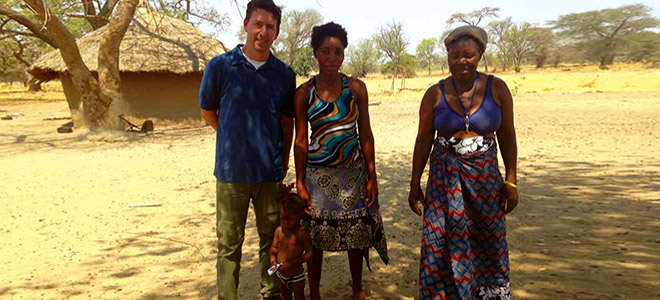
Boulder Magazine
Winter/Spring 2016-2017
How much do you really know about climate change? And where does your information come from? For most of us, media is our primary source of what we know about the topic. And most of the information contained in media reporting comes more from specific events, personalities, and pro and con discussions than from research papers or specific analyses by the scientists intimately involved in climate study. The impact of media on the climate-change debate impacts policy and the progress of change, and even our everyday experiences with the topic.
The University of Colorado’s Max Boykoff is an expert in the study of how media impacts the climate-science debate. An assistant professor in the Cooperative Institute for Research in Environmental Sciences and the Center for Science and Technology Policy Research, his perceptive insights help unravel the interaction between media and the public discussions surrounding climate change.
Tom Brock interviewed Dr. Boykoff in his office on the CU campus on Oct. 20, 2016.
Boulder Magazine: Climate change can be an overwhelming topic to many people. Your study of the interface between climate change and public perceptions is fascinating. Please help our readers understand what you do. You describe your field of research as “the cultural politics of climate change.” What does that mean?
Max Boykoff: Cultural politics refers to the movement from formal climate science and policy into people’s everyday lives. How decision-making priorities and discussions within science and policy translate into everyday people’s attitudes, intentions, perspectives, beliefs and behaviors about climate change. And how those public attitudes then feed back into the formal processes.
So, to what I do. Over time I’ve looked at how media influences public discussion that takes place. I’ve analyzed major network coverage of climate change, and print coverage of climate change in different countries to get a sense of what kinds of issues find traction in the public sphere and which others may be overlooked, and what the effects of that might be.
You’ve talked about forces that impact public understanding of climate change. What are those?
The production of media content is a huge process in and of itself. The decisions that are made, for example, from the very beginning determine the introduction of these topics into the public sphere.
In the public sphere, there are other issues fighting for attention. Look at the [recent presidential] debates. A lot of people I work with who look at public attitudes and interactions were really hoping that the climate change question would be posed, and that there would be a way to address one of the most important issues of the 21st century. It didn’t get on the air. And that can be attributed in part to this demand for things that seem to be of acute public concern—jobs, economy, health care. You know, that holy trinity of concern. So, longer-term issues like climate change fight for attention in the public sphere.
Your research discusses different “actors”, like celebrities and dramatic climate events, that steer the climate conversation. Can you elaborate?
Different practices and pressures within journalism help to shape what becomes the story. If there is a charismatic personality that can drive the story forward, that can help as a news hook into telling stories more readily over others. Like Hurricane Matthew, to the extent that that can be attributed to climate change, was a hook that could sensitize certain audiences to these issues.
And there are other hooks. Certain authority figures, celebrities, what they say and pay attention to has much greater influence than the everyday citizen. Even though the academic is working on these issues, when celebrities have something to say, it can resonate with certain audiences much more than others.
So, you see the conversation about climate change being driven by instances, rather than intellectual curiosity or public concern about climate change?
Good question. I don’t think it’s possible, really, to pick them apart. However I do think you are onto something. There are events that trigger, and fight for attention, or they can be overwhelmed by other issues and not get attention. Those trigger events certainly play a big part in what gets into the public arena of scientific information. It could be new reports or studies coming out; it could be political events and information—the Paris climate talks garnered more coverage; cultural events, a variety of films and other cultural and social movements that feed into coverage; and finally meteorological and ecological events themselves. But it is clear events garner a great deal more coverage than those slow, impressive bits of scientific enterprise such as ice melt research.
One of your projects has been to track global newspaper coverage of climate change and climate events. The number of global articles has really sort of dropped off since 2010. Why is that?
It dropped off dramatically in 2009, and it’s been making a steady but slow comeback again over the last couple of years. Our team takes a set of indicators, 50 different publications across 25 countries, to give us a sense of the ebb and flow of coverage. There can be a lot of reasons for decline—the newsroom itself shrinking, funding for specialists or journalists that cover the complexities, the nuance of certain issues like climate change. There can be other things, like climate fatigue in the public arena. The high watermark was 2009 with the Copenhagen talks, but there was a big drop-off that can be attributed to the economic meltdown, the global meltdown. It’s been up overall over the last year or year and a half. Read more …

